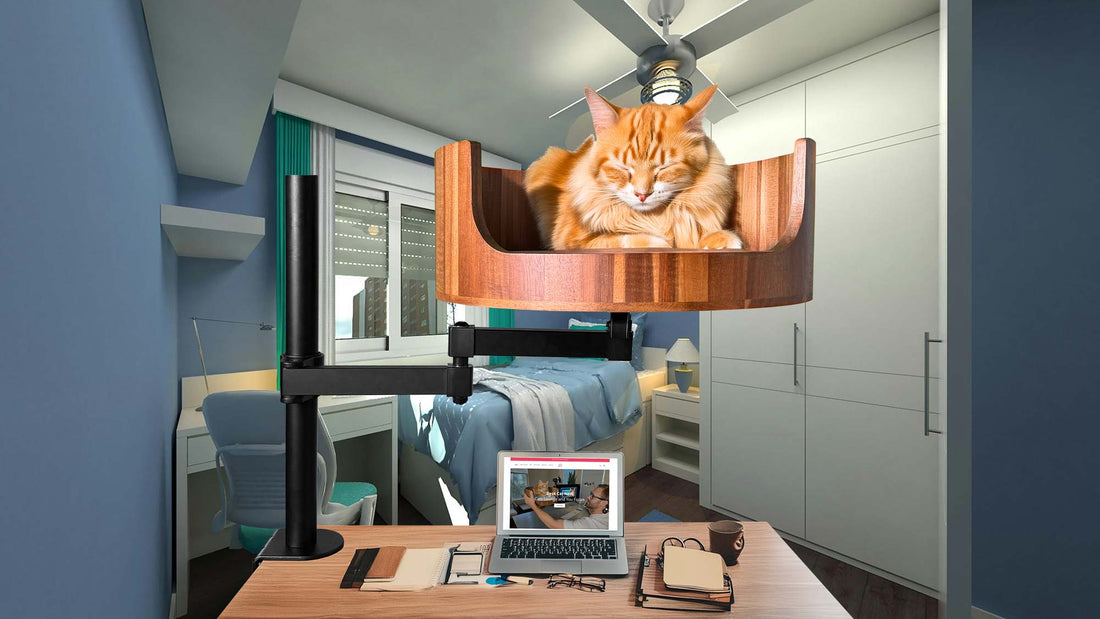
Why Can’t My Cat Meow? Understanding Feline Communication
Share
Have you ever wondered why your cat seems unable to meow like other felines? Understanding the complexities of feline communication can shed light on why your furry friend may be silent when it comes to vocalizations. While some cats are chatterboxes, others may have limitations in their ability to meow, leading to a unique form of communication that differs from the norm.
In this article, we will delve into the intricate world of feline communication and explore the reasons behind why some cats may struggle to meow. From genetic predispositions to health conditions, there are various factors that can contribute to a cat's vocalization abilities. By gaining insight into how cats communicate, you can better understand and connect with your pet on a deeper level. Join us as we uncover the mysteries behind why some cats can't meow and learn how to decipher the subtle cues they use to express themselves.
1. Cats have a wide range of vocalizations, but not all cats meow, and some may have physical limitations that prevent them from doing so.
2. Non-meowing cats rely on other forms of communication such as body language, scent marking, and facial expressions to convey their needs and emotions.
3. Some breeds, like the Siamese, are more vocal than others, while individual personalities also play a role in a cat's communication style.
4. Understanding your cat's unique way of communicating and responding appropriately can strengthen the bond between you and your feline friend.
5. If your cat's inability to meow is a sudden change, it's important to consult a veterinarian to rule out any underlying health issues.
Understanding Feline Communication
When it comes to understanding feline communication, meowing is just one of the many ways cats interact with their human companions. Cats have a wide range of vocalizations, body language, and behaviors that they use to communicate their needs, wants, and emotions. It's important for cat owners to pay attention to these various cues in order to better understand and bond with their feline friends.
Reasons Why a Cat Can't Meow
There are several reasons why a cat may be unable to meow. One common cause is a medical issue such as a respiratory infection or a problem with the vocal cords. In some cases, a cat may have never learned how to meow properly due to being separated from its mother at a young age. Additionally, older cats may experience changes in their meowing patterns due to age-related issues such as hearing loss or cognitive decline.
Alternative Forms of Feline Communication
Even if a cat is unable to meow, it will still find ways to communicate with its human family members. Cats use a combination of body language, facial expressions, purring, and other vocalizations to convey their needs and emotions. By paying attention to these subtler cues, cat owners can still effectively communicate with their non-meowing feline companions.
Case Studies
For example, Sarah's cat, Mittens, was born without vocal cords due to a genetic abnormality. Despite not being able to meow, Mittens communicates through purring, rubbing against Sarah's legs, and using his eyes to convey his emotions. Similarly, John's elderly cat, Whiskers, has experienced a decline in her meowing ability due to age-related hearing loss. Instead, Whiskers now communicates through gentle head bumps and soft purring to let John know when she wants attention or food. These case studies highlight how cats can adapt and find alternative ways to communicate even when they can't meow.
## Frequently Asked Questions
### Why can't my cat meow?
Cats may not be able to meow due to a variety of reasons, including medical issues such as respiratory infections, laryngeal paralysis, or even trauma to the vocal cords. It's important to consult with your veterinarian to rule out any underlying health issues.
### How can Desk Cat Nest help my cat meow?
Desk Cat Nest provides a cozy and comfortable space for your cat to relax and unwind, which can help reduce stress and anxiety that may be hindering their ability to meow. Additionally, the elevated design of the nest can help improve your cat's posture and overall well-being.
### Will Desk Cat Nest solve my cat's meowing issue?
While Desk Cat Nest can provide a soothing environment for your cat, it may not be a cure-all for their meowing issue. It's important to address any underlying health concerns with the help of your veterinarian and provide your cat with a holistic approach to their overall well-being.
### How should I introduce Desk Cat Nest to my cat?
When introducing Desk Cat Nest to your cat, it's important to do so gradually. Place their favorite toys or blankets inside the nest to make it more inviting, and allow them to explore it at their own pace. Reward them with treats and praise when they show interest in the nest.
In conclusion, the Desk Cat Bed is a valuable choice for addressing why your cat may be unable to meow. By providing a cozy and comfortable space for your cat to rest and relax, the Desk Cat Bed can help reduce stress and anxiety, which may be contributing to your cat's inability to meow. Additionally, the elevated design of the bed offers a sense of security and privacy, allowing your cat to feel more confident and communicative. Overall, investing in a Desk Cat Bed can improve your cat's overall well-being and help them express themselves more effectively through vocalizations.



















































